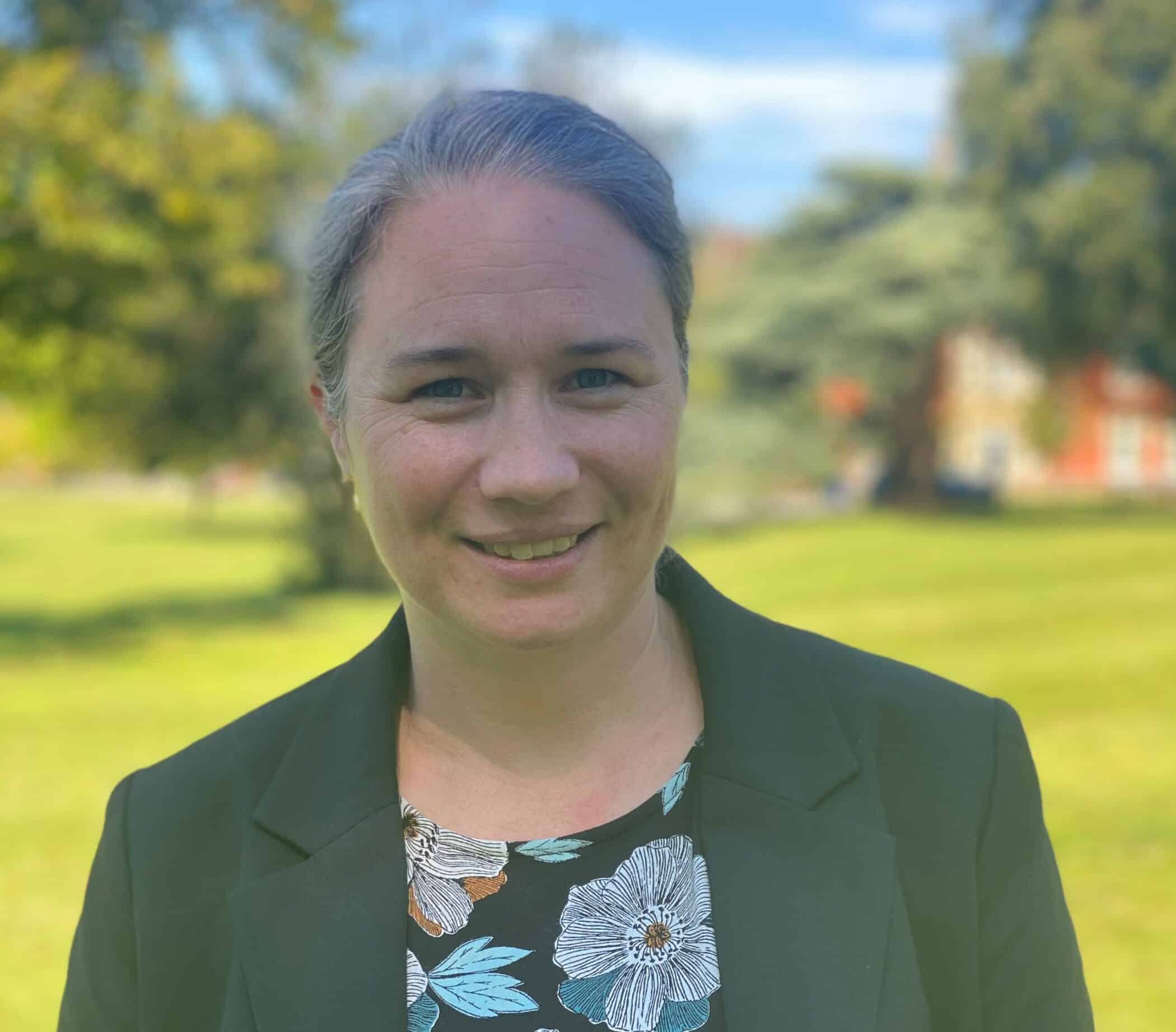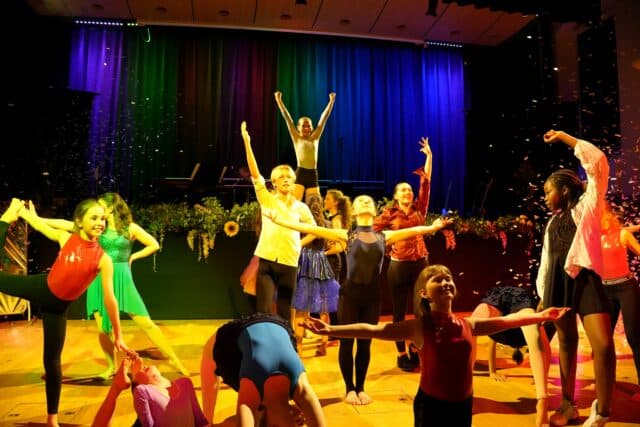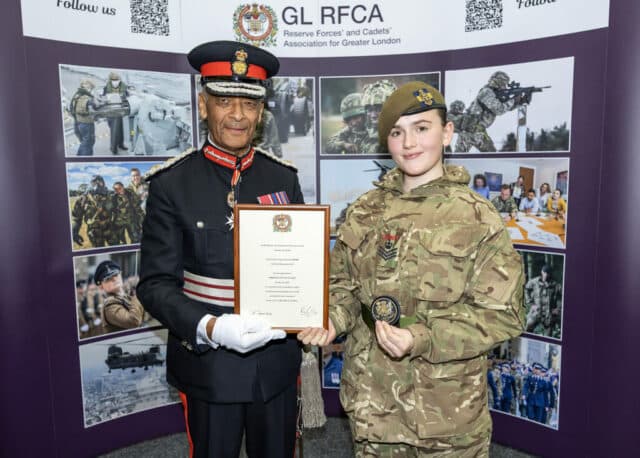Describe the role of Deputy Head: Academic?
I’m in charge of everything academic at the College, from overall academic strategy and the systems that support this, to smaller operational things such as the timing of parents’ evenings and field trips.
Day-to-day, I manage the academic leadership team and heads of departments, and I coordinate with all sorts of other members of staff to make sure that everything we do academically is the best it can be for the benefit of our pupils. So… no pressure!
What other areas of school life will you be involved in?
I trained as a science teacher and still absolutely love being in the classroom teaching Chemistry.
I can genuinely say that one of the best parts the start of term was sitting with the Chemistry Department, thinking about the lessons ahead of us. Even after more than 15 years of teaching, it’s a privilege to share the excitement and satisfaction of Chemistry with young people who want to understand more of the world around them.
I am also keen to get involved with the co-curricular programme, and College life in general. I have already put more things in my calendar than I will be able to be a part of!
What attracted you to Epsom?
Who wouldn’t want to come to Epsom College? There are so many things here that are truly great. I really enjoyed my own school career, and vividly remember feeling inspired in the classroom, the adrenaline of tough hockey matches, and laughing with friends as we took part in House competitions. Epsom is different to my own school in lots of ways, but the opportunities to try new things, have a breadth of interests, and be the best you can be in every area, is similar.
I am really excited to be a part of the Epsom community and, I hope, play a part in preparing our pupils to be the leaders and innovators of the future. There is so much potential here. And, of course, the beautiful grounds and buildings are a nice bonus.
What role does data modelling play in tracking pupils’ progress?
Parents often look at league tables and assume that really good raw figures mean really good teaching and learning. But it is not nearly as straightforward as that. We need to do baseline testing and examine pupil progress from that baseline to truly measure success.
It is only by looking at value-added data like this that we can spot pupils who are cruising through and challenge them to do better, or praise and encourage those who perhaps find a subject tough but are working hard and really improving.
Data is also crucial at a department level. We use baseline data to set department targets for GCSE and A-level outcomes, and identify which subjects are working really well and have good practice to share with others.
How do you ensure each pupil makes the expected progress?
I wish it was all about us as teachers and what we do in the classroom, because that would make our jobs much easier! Of course, we need to ensure we are the best we can be as we teach our subjects, which is why staff personal professional development has such a big emphasis at Epsom. We are currently working on what we have called “the expert teacher pathway”, thinking and discussing and putting into practice six key principles that educational research has shown are fundamental to effective teaching and learning.
But ensuring each pupil progresses as they should is about helping them understand their own roles and responsibilities in achieving their potential. We need to motivate pupils to work hard, to engage in lessons, to push themselves, and to respond to feedback on how to improve. If they do this, they will fly.
But every pupil is different, with their own set of personal circumstances and life challenges. This is where, ultimately, it is all about all of us working as a team, whether in the classroom or in houses or on the sports field, reminding pupils of the big picture when they lose sight of what is important, encouraging them when they hit a setback, and pushing them in the direction of what is in their long-term best interests.
I think this can sometimes be really hard. Like all humans, teachers can be tempted to say what we know our pupils (or parents) want to hear, but we have a responsibility to always act for pupils’ good, and sometimes this means saying difficult things or having to persuade them in a direction they are not initially inclined to.
What initiatives are you planning to introduce?
My focus at the moment is on ensuring our systems, messaging, and environment help pupils to work to the best of their ability, but I am also looking at the curriculum and what is going on in individual departments and lessons. There will be a few obvious changes, like a slightly different way of doing reports and grades, but I think most things will be a bit more behind the scenes.
Epsom College is a great school, but the longer-term plan is to be even better. There is definitely the potential for the College to be a national leader in providing an innovative and exciting education, where pupils achieve some of the best academic outcomes in the country, whilst maintaining our emphasis on community, breadth of interest, and character.
The rapid development of AI could change education dramatically in the next five years, and I would love to see Epsom at the forefront as things change, all the while holding firm to our values of kindness, integrity and ambition.
So, in summary, my long-term vision is that we take the best of what we already have and combine it with the willingness to be bold and forward-thinking, whatever that looks like, to help our pupils be the absolute best they can be and take their places as the pioneers and decision-makers and all-round excellent human beings we need in the world.
What do you like to do in your spare time?
Most of my spare time is spent on DIY. I really enjoy getting out my power tools and have most recently been working on upcycling old furniture and constructing built-in bookshelves. I am also a pianist and a drummer, so I am not sure my rather loud hobbies make us the best neighbours.
I also have two daughters, aged 10 and 8, and I love spending time with them. They are loads of fun and really adventurous, so we have enjoyed some great holidays hiking up mountains and wild camping in the Scottish Highlands. I think I’d secretly like to live in the middle of nowhere, kayaking and walking, sleeping under the stars, and cooking over a campfire.





